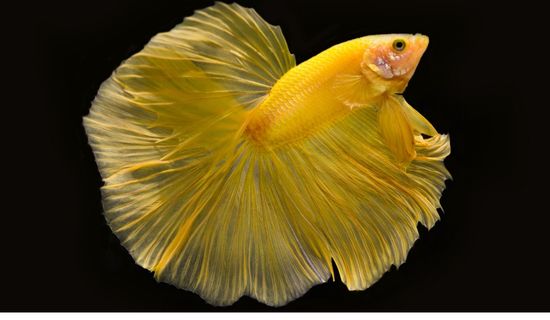Betta fish, with their vibrant colors and flowing fins, are popular choices among aquarium enthusiasts. But have you ever wondered about the Betta Fish Life span? Understanding the lifespan of betta fish is crucial for responsible betta owners. In this comprehensive guide, we’ll delve into the various aspects of Betta Fish Life span, equipping you with the knowledge to ensure your pet thrives.

Average Lifespan of Betta Fish
how long does a betta fish live?
The average Betta Fish Life span is an important aspect to understand if you want to care for these beautiful aquatic pets. Betta fish, also known as Siamese fighting fish, can live for about 2 to 3 years in captivity, but with proper care, they can sometimes reach up to 5 years or even longer. Several factors influence the lifespan of Betta fish. The primary factor is their environment. Betta fish thrive in clean, well-maintained aquariums with a stable water temperature between 75-82°F (24-28°C) and good water quality. They should be housed alone, as they are territorial and tend to fight with other fish, especially other Betta males.
Feeding is another crucial aspect. Providing a balanced diet of high-quality Betta fish pellets or flakes and occasional treats like bloodworms or brine shrimp will contribute to their overall health and longevity.
Regular water changes, a suitable tank size (at least 5 gallons), and appropriate tank decorations, such as hiding spots and soft plants, create a stress-free environment for your Betta, which can extend its lifespan.
In summary, the average lifespan of a Betta fish is around 2 to 3 years, but by maintaining a clean, properly heated tank and providing good nutrition, you can help your Betta live a longer and healthier life. Responsible care is essential to ensure these colorful fish live their best lives in your aquarium.


Factors Affecting Betta Fish Life span
Factors affecting a Betta fish’s lifespan are crucial to understand for students interested in keeping these beautiful aquatic pets. Betta fish, also known as Siamese fighting fish, can live anywhere from two to five years or even longer under optimal conditions. Several key factors influence their longevity:
- Water Quality: Maintaining clean water is paramount. Betta fish require a stable environment with appropriate pH levels (around 7) and a temperature between 78-80°F (25-27°C). Regular water changes and filtration are essential to remove harmful substances like ammonia.
- Tank Size: Betta fish need adequate space to swim and thrive. A minimum tank size of 5 gallons is recommended to ensure they have enough room and can establish territories without stress.
- Diet: Proper nutrition is vital. Feed your Betta a balanced diet of high-quality pellets, flakes, or live/frozen foods like brine shrimp and bloodworms. Overfeeding can lead to obesity and health issues.
- Water Parameters: Monitoring water parameters like ammonia, nitrites, and nitrates is crucial. High levels of these compounds can stress and harm your Betta.
- Tank Mates: Choose tank mates carefully. Betta fish are known for their aggression towards other Betta fish and some species. Avoid housing them with aggressive or fin-nipping tank mates.
- Stress Reduction: Limit disturbances, loud noises, and sudden changes in lighting. Betta fish can become stressed easily, which weakens their immune system and shortens their lifespan.
- Disease Prevention: Betta fish are susceptible to diseases. Quarantine new additions to your tank and be vigilant about maintaining cleanliness and proper hygiene.
- Genetics: Genetics play a role in a Betta’s lifespan. Some Betta fish may have predispositions to certain health issues due to their breeding history.
In summary, a Betta fish’s lifespan is influenced by the care and attention it receives. By providing a clean and spacious environment, a balanced diet, and minimizing stressors, students can help ensure their Betta fish live longer, healthier lives.


Betta Fish Life span Real-Life Examples
The long life of Betta fish is a fascinating topic that can be explained using real-life examples to help students understand better. Betta fish, also known as Siamese fighting fish, are a popular choice for aquarium enthusiasts. Despite their reputation for short lifespans, they can live longer when provided with proper care.
One real-life example is that of “Bluey,” a Betta fish owned by a dedicated pet owner. Bluey lived for an impressive 5 years because the owner ensured clean water, maintained a suitable tank temperature, and fed a balanced diet. This demonstrates how attentive care can extend a Betta fish’s life.
Another example involves “Finn,” a Betta fish in a well-maintained community tank. Finn lived for 4 years due to the ideal tank conditions, peaceful tankmates, and a stress-free environment. This case underscores the importance of selecting compatible tankmates and providing a stress-free habitat.
Lastly, consider “Bubbles,” a Betta fish in a spacious tank with plenty of hiding spots. Bubbles lived for 3 years because the tank’s setup mimicked their natural habitat, reducing stress and promoting physical and mental well-being.
These real-life examples highlight that Betta fish can enjoy long and healthy lives when provided with a clean, suitable environment, proper nutrition, and minimal stress. Teaching students about these examples encourages responsible pet ownership and showcases the significance of empathy and care for our animal companions.


Betta Fish Life span Myths and Misconceptions
Tiny Living Spaces: One common myth is that bettas can thrive in tiny bowls or vases. In reality, bettas need at least a 5-gallon tank with a heater and filter to maintain a stable and healthy environment.
No Companions: While bettas are aggressive towards their own kind, they can coexist with other fish and suitable tankmates. However, careful selection and monitoring are crucial to prevent conflicts.
Infrequent Feeding: Some believe that bettas can go without food for days. Regular, small feedings (2-3 times a day) are essential to keep them healthy, but be mindful not to overfeed.
Bubblenests Indicate Happiness: Bettas build bubblenests, but their presence doesn’t necessarily signify happiness. It’s a natural behavior associated with reproduction and not a gauge of their well-being.
Tap Water is Fine: Tap water often contains chlorine and other chemicals harmful to bettas. Using a water conditioner to treat tap water is vital to make it safe for your fish.
Short Lifespan: Many believe that bettas have short lifespans. With proper care, bettas can live for 3-5 years or even longer.
Changing Water Rarely: Infrequent water changes can lead to poor water quality and stress for bettas. Regular water changes (20-25% every week) are necessary to maintain a clean environment.
Inactive Behavior is Normal: Bettas are often seen resting near the surface. While they have moments of inactivity, prolonged lethargy can indicate health issues.
Educating yourself about betta fish care and dispelling these myths is essential to ensure these colorful and captivating fish live long, healthy lives in your care. Responsible ownership involves providing them with suitable housing, companions, nutrition, and attention to their well-being.


Tips for Extending Betta Fish Lifespan
Choose the Right Tank: Start with a suitable tank size. A minimum of 2.5 gallons is recommended to provide enough space for your Betta to swim comfortably.
Maintain Water Quality: Regularly change about 20-25% of the water in the tank every week to keep ammonia and nitrate levels in check. Invest in a good water conditioner to remove harmful chemicals.
Proper Filtration: Use a gentle filter to keep the water clean and maintain a stable environment. Betta fish prefer calm waters, so ensure the filter’s flow isn’t too strong.
Maintain the Right Temperature: Betta fish are tropical and thrive in water between 78-80°F (25-27°C). Invest in a heater to maintain a consistent temperature.
Balanced Diet: Feed your Betta a varied diet of high-quality pellets, flakes, and occasional treats like bloodworms or brine shrimp. Avoid overfeeding to prevent obesity.
Regular Exercise: Provide your Betta with places to explore in the tank, like plants and decorations. This helps them stay active and reduces stress.
Water Testing: Regularly test the water for pH, ammonia, and nitrate levels using aquarium test kits to ensure a healthy environment.
Tank Maintenance: Clean the tank, decorations, and gravel during water changes to remove debris and waste.
Isolation When Sick: If your Betta shows signs of illness, isolate it in a separate quarantine tank to prevent the spread of disease.
Avoid Stress: Betta fish are solitary and can become stressed in the presence of other aggressive fish. Keep them alone or with compatible tank mates.

In conclusion, understanding the lifespan of betta fish is key to providing them with the best care possible. By addressing the factors that influence their longevity, debunking common myths, and implementing practical tips, you can help your betta fish live a healthy and extended life. Share your experiences and questions in the comments, and let’s foster a community of responsible betta owners.
References
for more information about betta fish:
- Female Betta Health Issues and How to Prevent guide for beginner
- Tips for Successful female Betta Fish Breeding for beginners
- Breeding Female Betta Fish complete guide for beginners
- Female Betta Tank Mates complete guide for beginners
- Feeding Female Betta A comprehensive lead for your female betta
- Complete guide about water filtration and heating for female Bettas
- Water Parameters and Maintenance for Female Betta Fish
- Female Betta Fish Habitat A Complete Guide for Your Female Betta in 2023
- Selecting the Right Tank for Female Betta Fish in 2023
- Male Betta Fish A Step-by-Step Beginner’s Guide in 2023
- Betta Fish Tanks A Comprehensive Guide for Happy Bettas in 2023
- Male Betta Fish Tank Decor Ideas in 2023
- Betta Fish Life span Tips for Long-Lived Pets
For more in-depth information on betta fish lifespan, you can refer to scientific studies, books, or reputable online sources:
- International Betta Congress: The official website of the International Betta Congress provides valuable information on betta fish care, including lifespan considerations.
- BettaFish.com: This online community forum is a hub for betta fish enthusiasts. You can find discussions, articles, and care guides to help you extend your betta’s lifespan.
- Betta Care Guide by The Spruce Pets: The Spruce Pets offers a comprehensive guide to betta fish care, including tips on extending their lifespan.
- Betta Fish Lifespan: How to Extend It: PetMD offers a detailed article on betta fish lifespan and tips to help prolong it.




Pingback: Betta Fish Tank Decor Ideas in 2023
Pingback: Betta Fish Tanks A Comprehensive Guide for Happy Bettas in 2023
Pingback: Female Betta Fish A Step-by-Step Beginner's Guide
Pingback: Female Betta Tank Mates complete guide for beginners
Pingback: Feeding Female Betta A comprehensive lead for your female betta
Pingback: Complete guide about water filtration and heating for female Bettas
Pingback: Betta Fish Habitat A Complete Guide for Your Female Betta in 2023
Pingback: Male Betta Fish A Step-by-Step Beginner's Guide in 2023
Pingback: Female Betta Health Issues and How to Prevent guide for beginner
Pingback: Tips for Successful female Betta Fish Breeding for beginners
Your article helped me a lot, is there any more related content? Thanks!